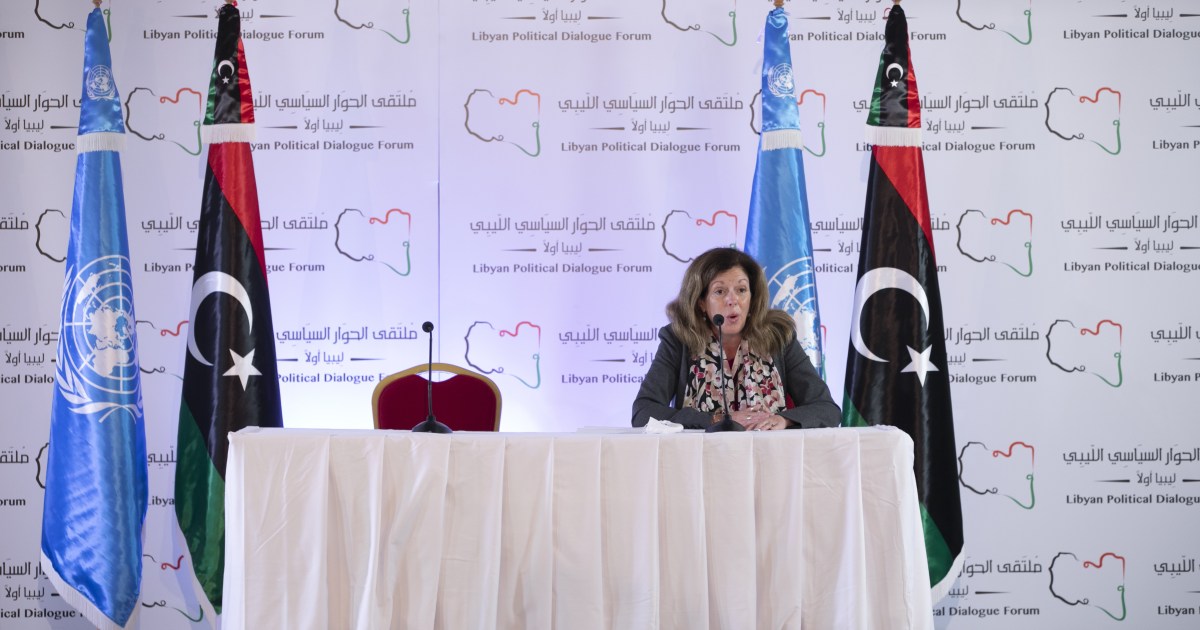The acting UN envoy to Libya, Stephanie Williams, confirmed that the Libyan factions agreed during the talks held in Tunis to set a road map that ends with elections within 18 months, and the parties in Sirte are also considering withdrawing their forces according to the truce.
Williams said in a press conference from Tunis on Wednesday evening that the parties reached a preliminary agreement on a road map to end the transitional period, according to which parliamentary and presidential elections will be organized within a period not exceeding 18 months.
The UN official explained that the discussions between the participants are making great progress, and that the participants in the dialogue showed awareness and commitment to end the crisis, and that everyone agreed on the need for unity, independence and sovereignty of Libya.
Williams emphasized that the road map will clarify the necessary steps to unify public institutions and address issues of concern to the displaced.
She also said that the talks, which will continue on Thursday, will focus on forming a new unified transitional government to oversee the pre-election phase, and that the participants will discuss its "powers and competencies."
Meanwhile, a joint military committee formed by the two parties to the conflict is scheduled to discuss the details of the armistice in Sirte today, Thursday, and discuss the implementation of proposals to withdraw the forces of the two sides from the fighting fronts.
Commenting on the killing of the Libyan lawyer and activist Hanan al-Barasi, Williams said that "it is very unfortunate and a gross violation of human rights, an investigation will be opened."
She added that the event will not be linked to the forum, and that there are many obstacles that may coincide with the ongoing talks.
Eyewitnesses and Libyan media reported on Tuesday that gunmen in 3 cars shot the activist Al-Barasi in Benghazi.
Under the auspices of the United Nations, meetings of Libyan dialogues were launched on October 26, in preparation for a direct meeting that began in Tunisia on Monday with the participation of 75 Libyan components, who represent deputies, members of the High Council of State, notables and representatives of the three regions (Tripoli, Barqa and Fezzan).

